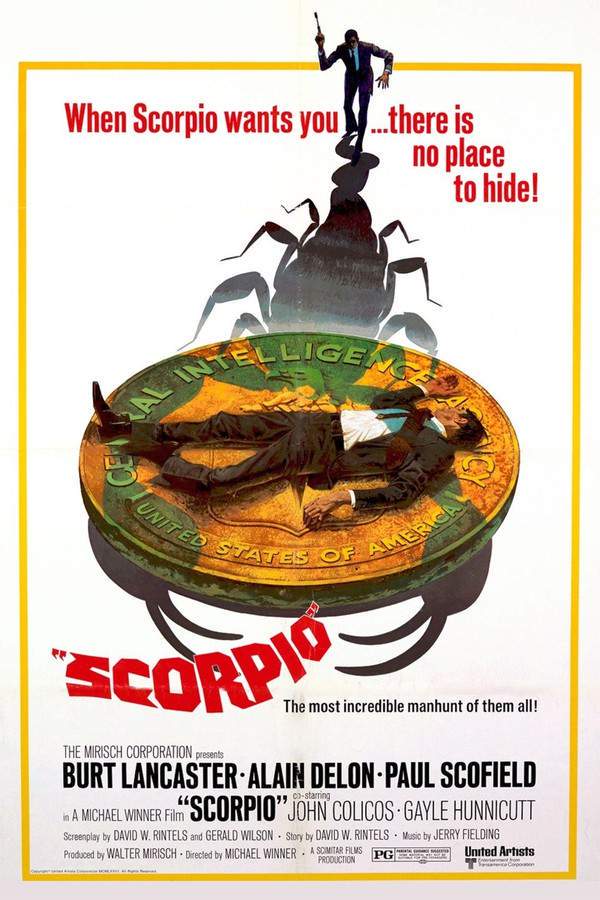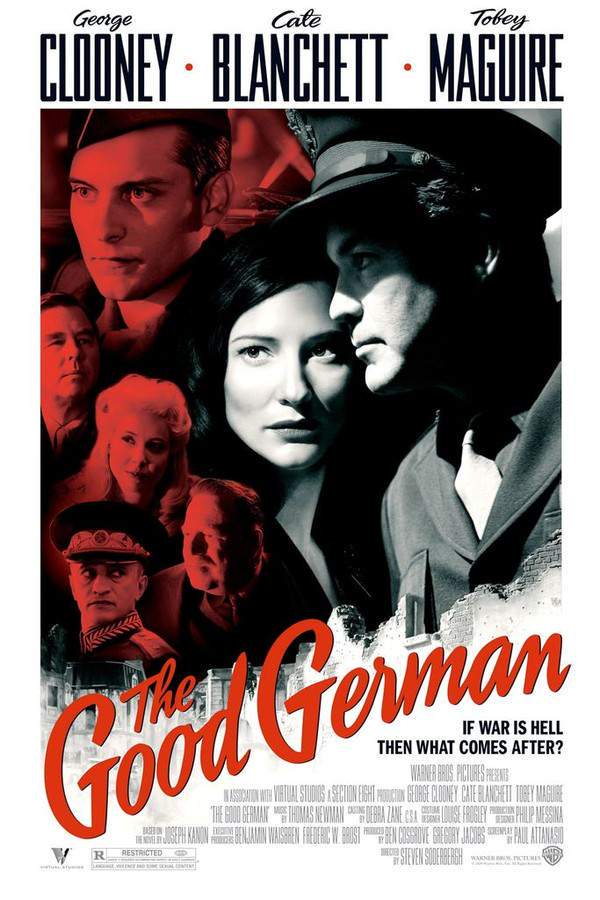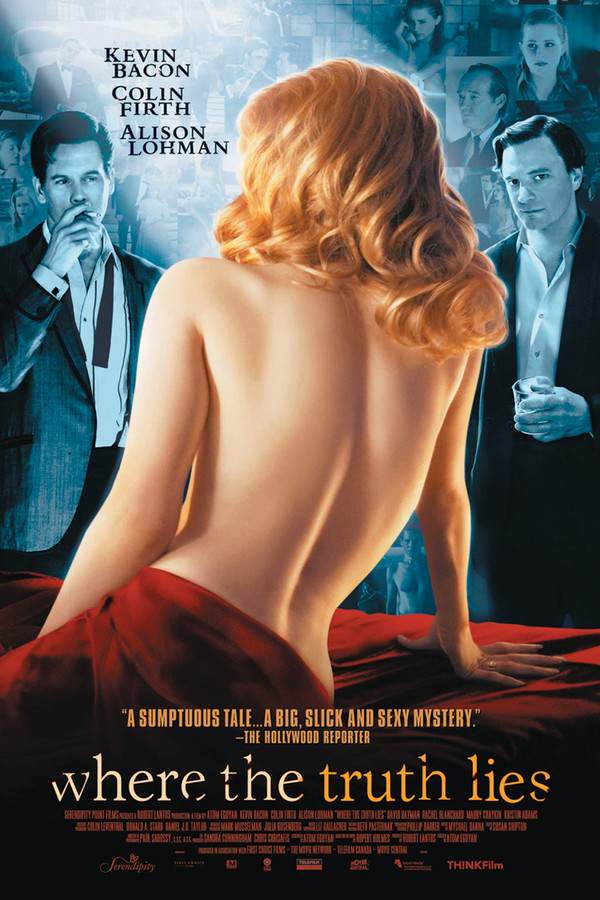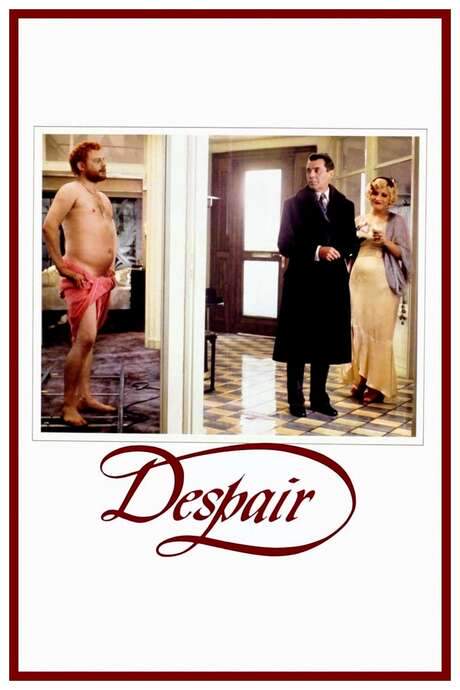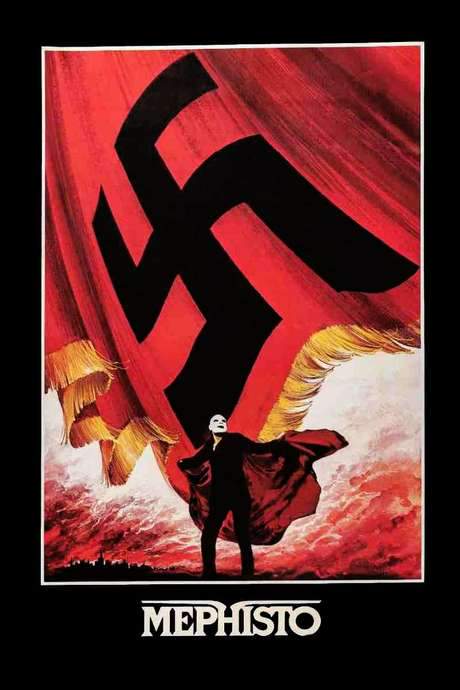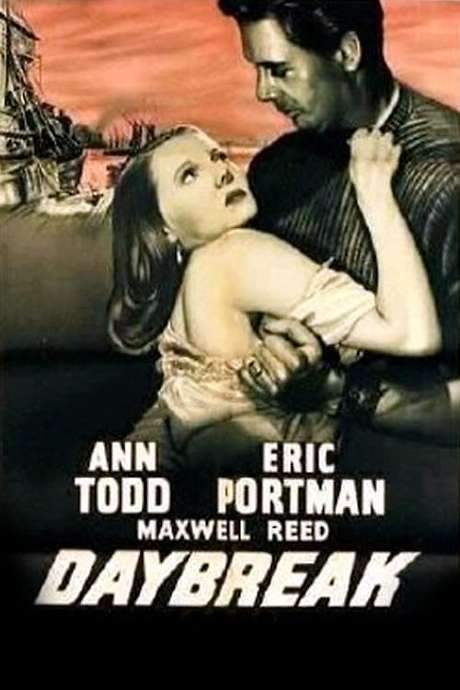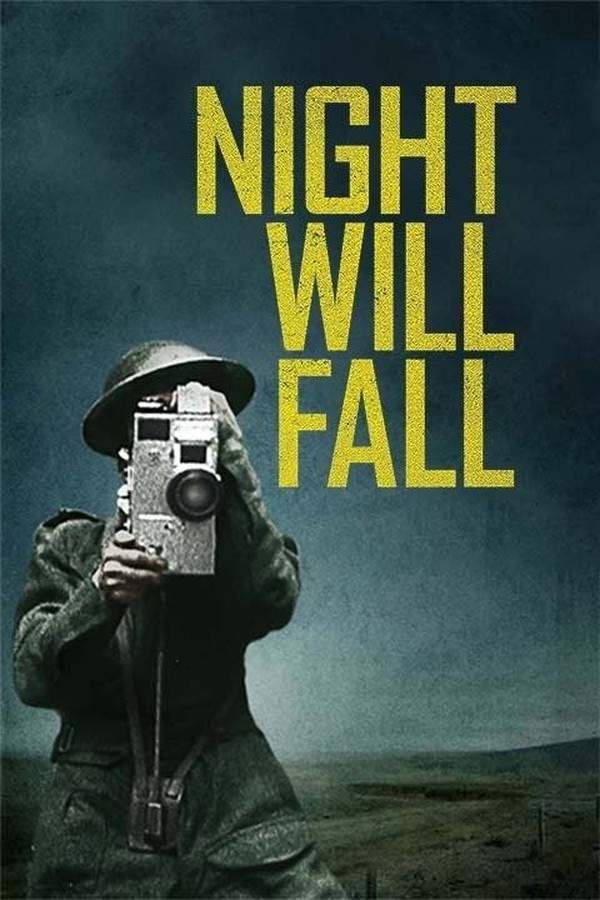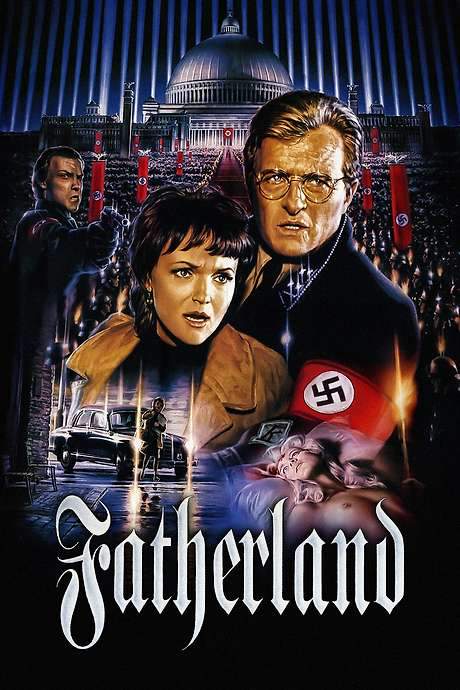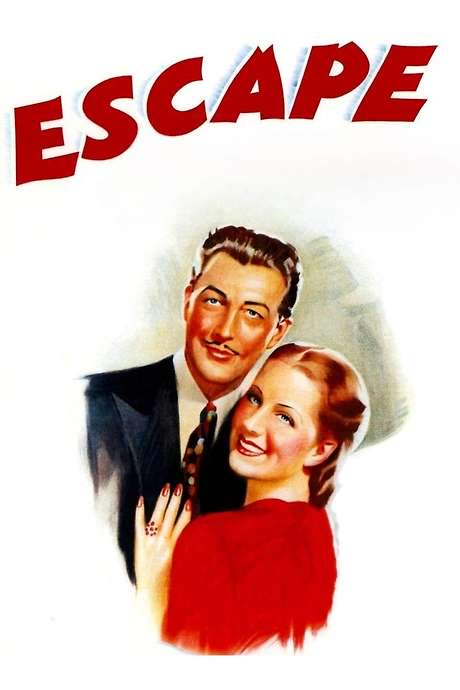
Mother Night
Year: 1996
Runtime: 114 mins
Language: English
Director: Keith Gordon
The truth behind his uniform is far more disturbing: he was an American spy operating behind enemy lines in World War II, forced to masquerade as a Nazi propagandist. That false identity follows him after the war, and he is compelled to keep his true mission secret, leaving his future haunted by the deception.
Warning: spoilers below!
Haven’t seen Mother Night yet? This summary contains major spoilers. Bookmark the page, watch the movie, and come back for the full breakdown. If you're ready, scroll on and relive the story!
Mother Night (1996) – Full Plot Summary & Ending Explained
Read the complete plot breakdown of Mother Night (1996), including all key story events, major twists, and the ending explained in detail. Discover what really happened—and what it all means.
Confined in an Israeli jail, Howard W. Campbell, Jr. [Nick Nolte] writes a memoir about his career in Nazi Germany, a tapestry of fame, fear, and moral ambiguity that spans years and continents. The story unfolds in a tense, morally gray landscape, where memory is both weapon and witness, and every choice bears a lasting cost.
During the prewar years, Campbell, an American playwright who produced German-language stage works, is approached by War Department operative Frank Wirtanen [John Goodman]. Wirtanen offers Campbell a covert role as a spy for the United States as the conflict looms, but his terms are stark: no reward, no recognition, only a quiet willingness to act when history calls. Campbell’s initial refusal is met with a pointed test—his decision will reveal itself not in grand declarations but in the posture he adopts once war begins. The moral math is murky, and Campbell hesitates, wary of embracing a role that could redefine his entire identity.
As Europe descends into war, Campbell inches into the inner machinery of Nazi Germany, climbing the ranks of Joseph Goebbels’ Propaganda Ministry. He becomes the “voice” of English-language broadcasts that propagandize Nazism and antisemitism for American listeners, a chilling parallel to the real-world reach of state-controlled media. What looks like artistry and manipulation on the surface is actually a hidden calculus: Campbell’s distinctive delivery—deliberate pauses, coughing fits, and carefully timed inflections—conceals a covert coding scheme. Unbeknownst to the Nazis, those idiosyncrasies transmit information to Allied intelligence, turning Campbell’s broadcasts into a subversive lifeline for the resistance. The tension between performative duty and clandestine duty becomes a central thread, as he must balance the performative ethics of a public persona with the private, life-saving truth he encodes beneath the surface.
The war’s human cost intrudes with brutal immediacy. Campbell’s wife, Helga, is reported dead on the Eastern Front, a blow that marks him deeply and reshapes his loyalties and longings. In early 1945, near Berlin, Campbell visits Helga’s family, a moment that crystallizes the personal losses hovering behind political grandstanding. Helga’s younger sister, Resi, discloses a forbidden love for Campbell, exposing him to a vulnerability few spies admit to themselves. The emotional clutter thickens the air, and the line between personal desire and national duty becomes harder to parse as the war edges toward its conclusion.
Yet fate has a harsher pattern in store. Campbell is captured when an American infantryman recognizes his voice, a reminder that truth has a stubborn, audible form. Before the execution can proceed, Wirtanen intervenes, arranging Campbell’s discreet release and a relocation to New York City. The United States, wary of revealing Campbell’s true role and the spycraft he embodies, keeps his history shrouded, arguing that the knowledge must remain secret for future conflicts. Campbell is left to grapple with the idea that his own truth could become a tool for a future war, potentially sacrificing his privacy and humanity for a larger strategic calculus.
In the shadowed quiet of New York, Campbell’s life becomes a lonely refuge of memory. For fifteen years he endures a precarious existence, sustained by recollections of Helga and a stubborn curiosity about his fate. The only person who suspects his real identity is Mrs. Epstein, a Holocaust survivor who lives in Campbell’s building; he tries to maintain a veneer of ignorance about German, deflecting her concerns with careful ambiguity. Campbell’s closest confidant is George Kraft, a patient, elderly painter who is, in a stunning coincidence, a Soviet intelligence asset. Their chess games become a metaphor for strategy and survival, a continuous negotiation of power, risk, and loyalty.
Through countless matches of chess and dialogue, Kraft presses Campbell to reveal his past, hoping to use that information to curry favor with his own handlers and maneuver Campbell toward Moscow. Kraft’s schemes become intertwined with Campbell’s fate when Kraft leaks Campbell’s whereabouts to a shadowy cadre of neo-Nazi sympathizers that has grown emboldened in New York. Into this volatile mix arrives a woman who seems to be Helga, a cruel mirror that forces Campbell to reassess what he has become. But the truth is more complicated still: the woman is actually Resi, who has assumed Helga’s identity to escape East Germany. The deception complicates the bonds Campbell thought he could trust and triggers a chain of dangerous moves that threaten everyone involved.
The neo-Nazi faction shelters Campbell, Kraft, and Resi in a Manhattan hideout, a temporary asylum that is as dangerous as it is nurturing. Wirtanen reappears with grave warnings and clarifications: Kraft’s true identity has been uncovered, and Resi’s ruse has placed Campbell in a precarious balance with the extremists who want to see him moved to Moscow. When Campbell confronts Kraft in the hideout, the confrontation exposes painful truths about manipulation, loyalty, and the price of truth-telling in a world that prizes power over humanity. Resi, overwhelmed by the exposure of her ruse, takes her own life, a moment that underscores the fragile human cost behind geopolitical games. The FBI arrives to raid the hideout, yet Wirtanen uses his influence to secure Campbell’s release—an unsettling reminder that espionage often folds back into moral ambiguity rather than delivering clean justice.
Emerging from the ordeal, Campbell wanders through a nameless footpath, his sense of purpose evaporated and his future uncertain. A voice of ordinary authority—an officer—orders him to move along, a trivial command that feels devastating in its finality. Campbell returns to his damaged apartment, where the wreckage of his double life confronts him with brutal clarity, and he resolves to surrender to the Israelis to stand trial for his layered, unsanctioned past.
The final movement of the film transports Campbell to Haifa, where he is housed in a cell beneath an unrepentant Adolf Eichmann [Henry Gibson], the infamous architect of genocide. The tension of the film ascends as a letter from Wirtanen arrives, providing corroborating evidence that Campbell was indeed a U.S. spy during the war. The closing surge of the story is a grim meditation on accountability and self-judgment: Campbell’s decision to take his own life is framed not as a vanquished indictment of humanity but as an act of personal reckoning. In his final, quiet act, he does not claim innocence, nor does he accept absolution; he chooses a solitary, interior form of justice—crimes against myself.
The film is anchored by a cast of figures whose loyalties and identities ripple through the narrative. The intertwined histories of Campbell’s public deception and private conscience reveal a man who navigates moral risk with a stubborn, persistent hope for truth—even when truth carries a heavy price. The atmosphere is dense with the weight of memory, guilt, and the paradox that intelligence operations—necessary for survival—often require individuals to live with secrets that swallow the honest parts of themselves. In the end, the story asks whether a life spent orchestrating propaganda, even for a noble aim, can ever be fully redeemed, and whether one can truly escape the consequences of choices that echo across decades and borders.
“crimes against myself.”
Last Updated: October 09, 2025 at 09:34
Explore Movie Threads
Discover curated groups of movies connected by mood, themes, and story style. Browse collections built around emotion, atmosphere, and narrative focus to easily find films that match what you feel like watching right now.
Spy identity crisis stories like Mother Night
Undercover agents lose themselves in the role they were meant to play.For viewers seeking movies like Mother Night that explore the heavy burden of a double life. These films feature undercover agents whose fabricated identities begin to consume them, leading to profound moral and psychological crises within tense, high-stakes settings.
Narrative Summary
This narrative pattern follows an operative who must deeply inhabit a cover identity, often one that is morally repugnant. The central conflict shifts from external mission objectives to an internal struggle for identity, as the protagonist grapples with the guilt of their actions and the fear of being permanently defined by their lie.
Why These Movies?
These films are grouped by their intense focus on the psychological decay of the spy. They share a tone of claustrophobic paranoia, a steady pacing that allows the moral weight to build, and a bleak sensibility regarding the personal cost of geopolitical games.
Movies about moral compromise like Mother Night
Characters are forced into impossible choices that haunt their future.If you liked the heavy emotional weight and bleak outlook of Mother Night, this collection features films where protagonists make devastating moral choices. These are complex, character-driven dramas exploring guilt, survival, and the difficult price of one's actions.
Narrative Summary
The narrative typically involves a 'lesser evil' decision made under extreme duress, which then becomes an inescapable shadow over the protagonist's life. The story unfolds as a slow, steady reckoning with this past action, leading to isolation and a bleak confrontation with the personal cost of survival or duty.
Why These Movies?
These films share a dark, heavy tone and a complex exploration of guilt and responsibility. They create an anxious, oppressive atmosphere through steady pacing and a focus on internal turmoil, almost always culminating in a somber or tragic resolution for the protagonist.
Unlock the Full Story of Mother Night
Don't stop at just watching — explore Mother Night in full detail. From the complete plot summary and scene-by-scene timeline to character breakdowns, thematic analysis, and a deep dive into the ending — every page helps you truly understand what Mother Night is all about. Plus, discover what's next after the movie.
Mother Night Timeline
Track the full timeline of Mother Night with every major event arranged chronologically. Perfect for decoding non-linear storytelling, flashbacks, or parallel narratives with a clear scene-by-scene breakdown.

Characters, Settings & Themes in Mother Night
Discover the characters, locations, and core themes that shape Mother Night. Get insights into symbolic elements, setting significance, and deeper narrative meaning — ideal for thematic analysis and movie breakdowns.

Mother Night Spoiler-Free Summary
Get a quick, spoiler-free overview of Mother Night that covers the main plot points and key details without revealing any major twists or spoilers. Perfect for those who want to know what to expect before diving in.

More About Mother Night
Visit What's After the Movie to explore more about Mother Night: box office results, cast and crew info, production details, post-credit scenes, and external links — all in one place for movie fans and researchers.

Similar Movies to Mother Night
Discover movies like Mother Night that share similar genres, themes, and storytelling elements. Whether you’re drawn to the atmosphere, character arcs, or plot structure, these curated recommendations will help you explore more films you’ll love.
Explore More About Movie Mother Night
Mother Night (1996) Scene-by-Scene Movie Timeline
Mother Night (1996) Movie Characters, Themes & Settings
Mother Night (1996) Spoiler-Free Summary & Key Flow
Movies Like Mother Night – Similar Titles You’ll Enjoy
Night Will Fall (2014) Complete Plot Breakdown
Close to the Enemy (1000) Film Overview & Timeline
A Call to Spy (2019) Ending Explained & Film Insights
Mother’s Mask (1988) Detailed Story Recap
Night of the Fox (1990) Full Movie Breakdown
Night and Fog (1956) Complete Plot Breakdown
Night People (1954) Ending Explained & Film Insights
The Night of the Generals (1967) Story Summary & Characters
Shining Through (1992) Film Overview & Timeline
Fatherland (1994) Film Overview & Timeline
Escape (1940) Movie Recap & Themes
The Third Part of the Night (1971) Detailed Story Recap
Confessions of a Nazi Spy (1939) Plot Summary & Ending Explained
All Through the Night (1942) Movie Recap & Themes
Night Train to Munich (1940) Spoiler-Packed Plot Recap

